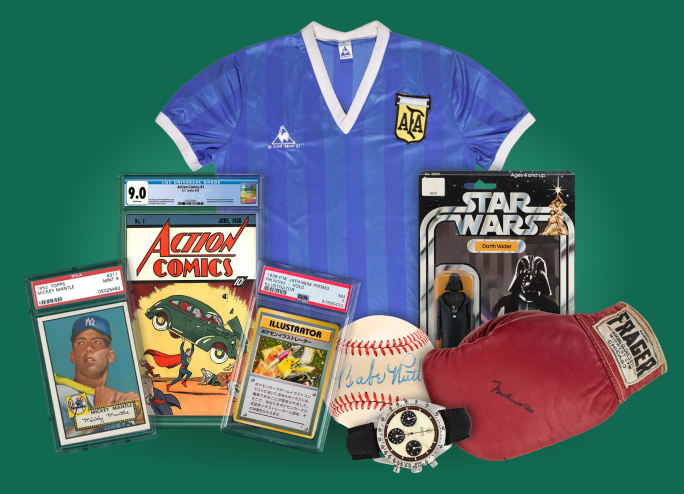
In Collectors MD
collectorsmd
May 14 2025
Edited
Gaming or Gambling? The Lines Are Blurring
Published May 13, 2025 | By Alyx E, Founder of Collectors MD
Is gaming just a way to pass the time? Or has it become something else—something with stakes, risks, and consequences we don’t always see? The truth is, modern gaming has transformed into a multi-billion dollar industry driven by addictive mechanics. And in many ways, it looks a lot like gambling.
Understanding the Mechanics: Where Gaming Meets Gambling
At its core, gambling is about placing something of value at risk for the chance of a reward. Traditionally, that meant casinos, slot machines, and betting. But in today’s digital world, those mechanics have found a new home—right in the palm of your hand.
Loot Boxes: Digital treasure chests that you pay to open, without knowing what’s inside. It could be a rare skin, a powerful weapon, or just a useless item. The excitement is in the unknown—just like a pull of the slot machine lever.
Microtransactions: Games that lure you in with a low price or a free download but constantly offer you ways to spend money—new skins, power-ups, or “limited-time” offers.
Gacha Mechanics: A popular feature in mobile games where players spend money to receive random characters, items, or rewards—essentially a digital version of a blind pack.
“One More Try” Incentives: Prompts that encourage you to keep playing, keep spending, and keep chasing that next big win.
Flashy skins, limited-time offers, endless content—keep you coming back and spending. But is it just a game?
Who’s Being Targeted?
The most alarming part of this transformation is that it’s not just seasoned gamblers who are being targeted—it’s kids. Bright colors, exciting sounds, and limited-time events pull them in, while the constant promise of rare rewards keeps them hooked.
And it’s not just children. Adults, too, find themselves trapped in these mechanics, spending hundreds or even thousands of dollars chasing digital rewards. The thrill of the chase becomes an obsession. The game becomes a grind. And soon, it’s not fun—it’s a habit.
Kids chase digital rewards they don’t understand. Adults spend hundreds chasing a “win.” It’s a cycle—and it’s not just a game.
But It’s Just a Game… Right?
That’s the problem. Because it’s “just a game,” we dismiss the impact it can have. We don’t think of it as gambling because there are no poker chips, no roulette wheels, no casino floors. But the psychological triggers are the same:
Randomized Rewards: The rush of getting something rare or valuable, even if it’s just a digital item.
Near Misses: Just barely missing a big win, encouraging you to try again.
Time-Limited Offers: Creating a sense of urgency to spend before an opportunity disappears.
Social Pressure: Seeing friends unlock rare items, feeling left out, and spending money to keep up.
No poker chips. No slot machines. Just bright colors, time-limited offers, and endless spending—triggering the same psychology as gambling.
The Consequences Are Real
For some, it’s just a few dollars spent here and there. But for others, it spirals into hundreds, even thousands of dollars lost. And the consequences aren’t just financial—they’re emotional. The rush of the win is followed by the crash of regret. The fun turns into frustration. And what was once a hobby becomes a problem.
For some, it’s a few dollars. For others, it’s thousands. But the true cost isn’t just financial—it’s emotional. Thrill turns to regret.
Recognize the Risks. Protect Yourself.
At Collectors MD, we’re not here to tell you to quit gaming. We’re here to tell you to recognize the risks. Understand the difference between entertainment and addiction. Know when you’re playing for fun, and when you’re just trying to beat the odds.
Here’s how you can protect yourself:
Set Limits: Decide in advance how much time and money you’re willing to spend on gaming. Stick to it.
Recognize Manipulation: Understand how game developers use psychological tricks to keep you spending.
Educate Yourself: Know what loot boxes, gacha mechanics, and microtransactions really are.
Talk About It: If you’re struggling with compulsive spending, you’re not alone. Reach out to Collectors MD or someone you trust.
Model Healthy Habits: If you have kids, make sure they understand the difference between playing a game and gambling.
Gaming should be fun—not a financial trap. Set limits, recognize manipulative tactics, educate yourself, and talk about it. If you’re struggling, you’re not alone.
The Line Is Blurring. But You Don’t Have to Be a Victim.
Gaming can be a fun, creative, and social experience. But it can also be a trap. And the first step to protecting yourself is recognizing when you’ve crossed that line.
Gaming can be fun—or a trap. Know the difference.
#CollectorsMD
Play for fun, not for a fix. Game responsibly. Collect responsibly.
—
Follow us on Instagram: @collectorsmd
Subscribe to our Newsletter & Support Group
Join The Conversation On Mantel
Read More Daily Reflections







